What the U.N. court ordered Israel to do and what it means for the Gaza war
The International Court of Justice has no power to enforce its rulings, but there was consequence in what it ordered Friday — and what it didn’t.
For some, the demand from the United Nations’ top court that Israel do everything it can to prevent genocidal acts in Gaza was a striking symbolic blow against the war. The court stopped short of ordering the immediate cease-fire that Palestinian supporters desired, however — setting up a complicated, yearslong legal battle that will play out while the fighting continues.
It was not the full denunciation desired by the Palestinians, or the flat rejection called for by Israel. But the judges effectively ruled that when it comes to accusations of genocide there is a case to be heard, and immediate action that Israel must take.
William Schabas, a professor of international law at England’s Middlesex University who specializes in war crimes studies, called the decision “a remarkable achievement for South Africa,” which brought the case.
“Yesterday Israel was saying it expected the court to dismiss the application,” said Schabas, former president of the International Association of Genocide Scholars. “Well, it certainly didn’t do that. It is treating this as a matter of the utmost seriousness.”
The ruling will heap international pressure on Israel’s military campaign in Gaza, in which more than 26,000 people have been killed, according to local officials, and the vast majority of the enclave’s 2.3 million population have been displaced from their homes.
In a taste of the renewed global scrutiny the court’s order will bring, it was not just traditional backers of the Palestinian cause such as Turkey and Egypt but the European Union also asserting that Israel “must comply with” the measures.
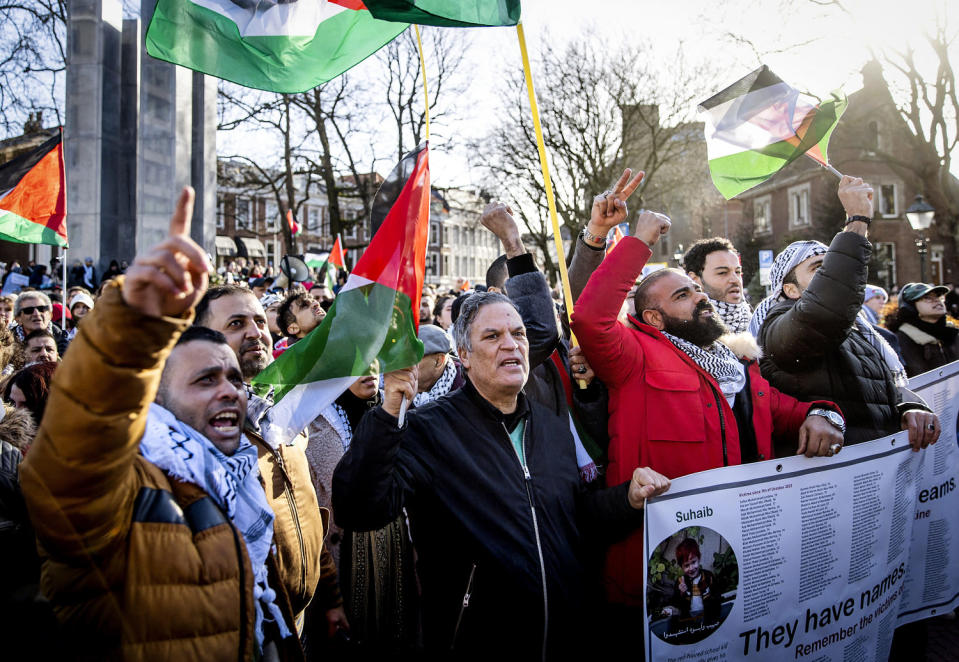
What the court ruled
The court in the Dutch city of The Hague flatly rejected Israel’s request to toss out the case, giving an unflinching account of the war so far.
Meanwhile it gave the Israeli government six legally binding orders to follow while the likely lengthy process plays out. Israel can easily ignore these imperatives — the ICJ has no real enforcement mechanism — although it has previously argued it is complying with all of these anyway.
Many of the measures were approved by an overwhelming majority of the judges, with an Israeli judge even voting in favor of two of the half dozen diktats imposed.
ICJ President Judge Joan E. Donoghue told Israel to “prevent the commission of all acts” of genocide by its forces, and “punish the direct and public incitement to commit genocide” by politicians and other public figures. She said “urgently needed basic services and humanitarian assistance” must be allowed in Gaza. And she ordered Israel to “prevent the destruction” of evidence related to the case. Israel must also submit a report within one month detailing everything it’s doing to comply.
“The court considers that the catastrophic humanitarian situation in the Gaza Strip is at serious risk of deteriorating further before the court renders its final judgment,” Donoghue told the hearing, which was streamed online and eagerly anticipated around the world.
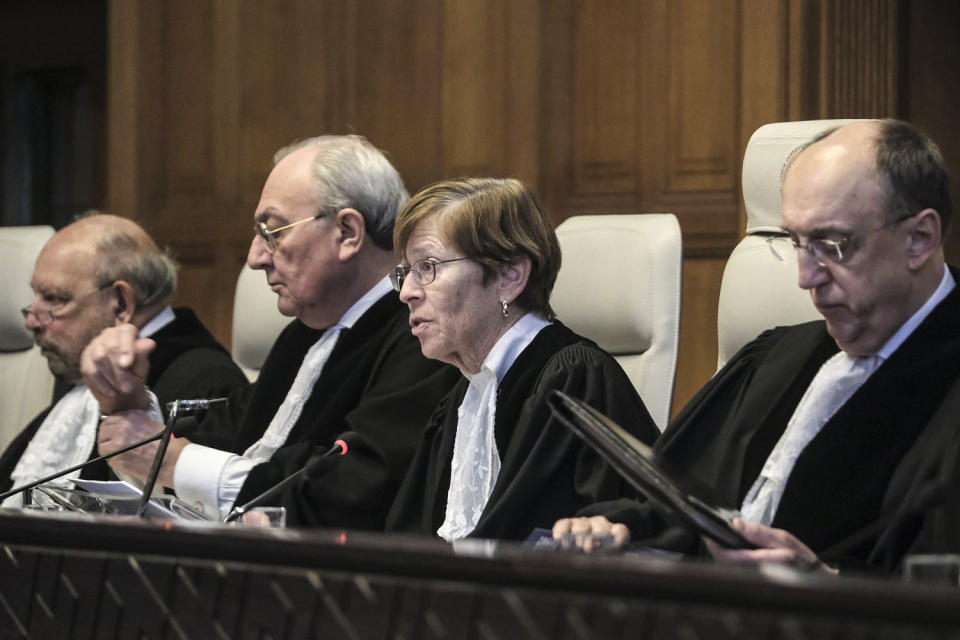
This is just the first stage of the case against Israel brought by South Africa, which says it is drawing on its own experiences under decades of apartheid, which ensured white minority rule over the Black majority.
The case now promises to be a complex, yearslong legal battle. Friday was about whether the court felt it had jurisdiction — it said yes — and its answer to South Africa’s request to impose emergency “provisional measures” — all of which it accepted except for an immediate cease-fire.
That does not mean it believes Israel is guilty of genocide; the bar in proving that a country has breached the Genocide Convention of 1948 is exceptionally high and has never been done. The court’s rulings are legally binding and unappealable.
Israel could ignore the ruling as others have before, for example Russia’s flouting of an ICJ order in 2022 to halt its war in Ukraine. The U.S., Israel's closest ally and backer, would likely veto any attempt to impose sanctions on Israel at the U.N. Security Council, although this could come at the cost of international goodwill and perhaps even economic sanctions by individual states.
The U.S. reiterated its stance that accusations of genocide are unfounded, but said Friday’s ruling was consistent with Washington’s own calls for Israel to minimize civilian harm, increase humanitarian assistance and address dehumanizing rhetoric.
The U.S. recognizes that the court plays a vital role in the peaceful settlement of disputes, a State Department spokesperson said, and “we will continue to monitor this proceeding as it moves forward.”
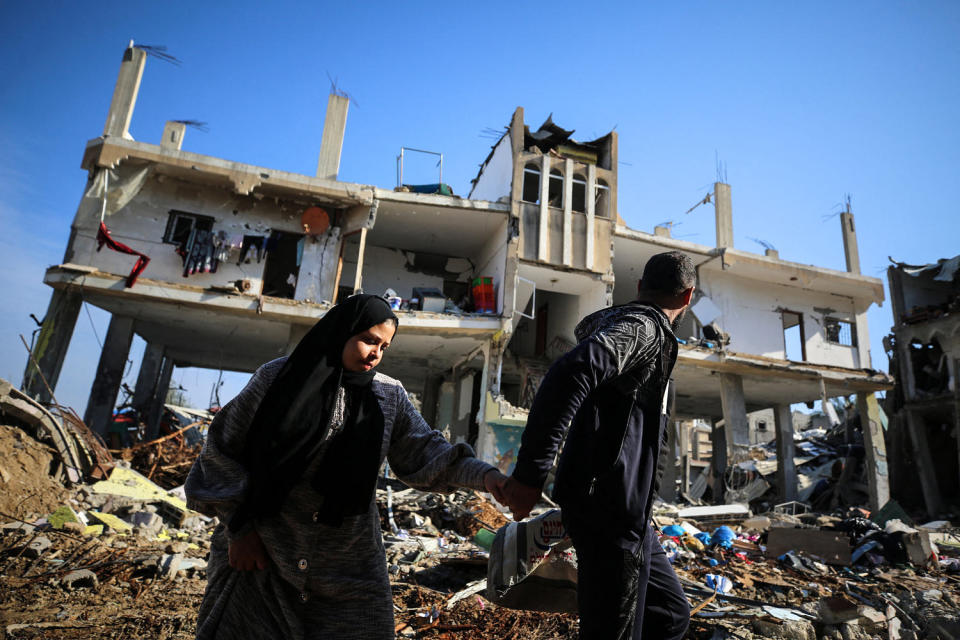
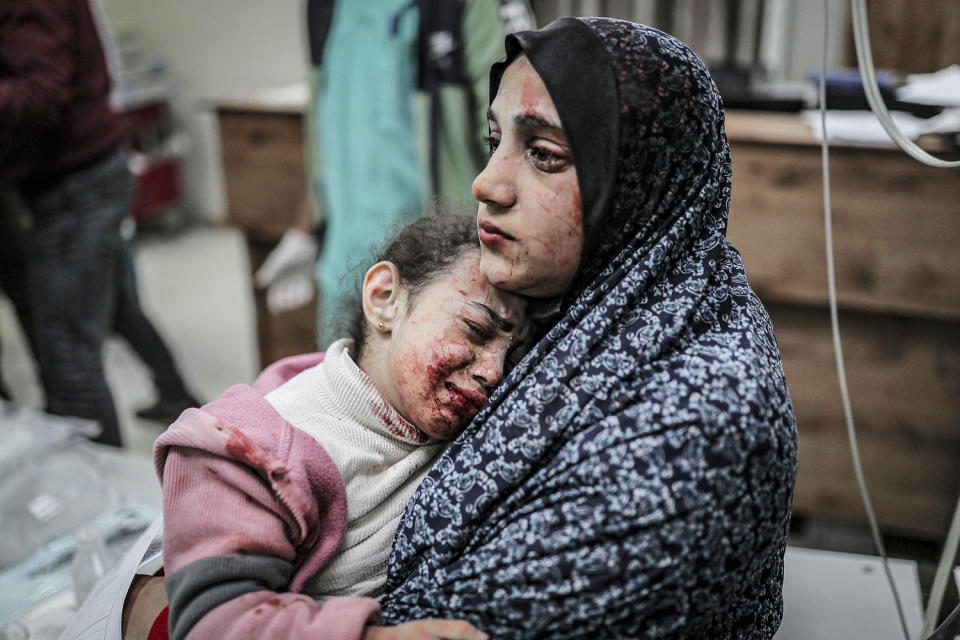
What it all means
Trita Parsi, executive vice president for the Quincy Institute for Responsible Statecraft, a Washington-based think tank, called it “a devastating blow to Israel’s global standing.”
Although a final decision is still years off, “Israel will now be similarly associated with the charge of genocide,” Parsi added. “As a result, those countries that have supported Israel and its military campaign in Gaza, such as the U.S. under President Biden, will be associated with that charge, too.”
Other experts did see some positives for Israel.
“I think it’s notable that the court did not call for an immediate cease-fire, which was something that South Africa was seeking,” said David J. Simon, director of the genocide studies program at Yale University. “Implicitly, the court recognized Israel’s invocation of their right to self-defense.”
Both sides have claimed some semblance of victory — although Israel has kept up its vehement rejection of the entire process.
Prime Minister Benjamin Netanyahu said the accusation of genocide was not only “false, it’s outrageous, and decent people everywhere should reject it.” However he praised the ICJ, which he said had “justly rejected” the “vile attempt” to deny his country’s right to defend itself.
Israel’s defense minister vowed that its campaign — launched after Hamas’ Oct. 7 attacks, which saw some 1,200 people killed and another 240 taken captive — would continue and that it “does not need to be lectured on morality in order to distinguish between terrorists and the civilian population in Gaza.” Itamar Ben-Gvir, one of the most right-wing ministers in Netanyahu’s coalition government, posted a two word response on X: “Hague Shmague.”
Hamas is not a country and therefore not party to the ICJ or the Genocide Convention. However the International Criminal Court, a separate body, says it is investigating the militant group’s widely condemned assault.
Though the focus of the case was the war in Gaza, Donoghue said the court was “gravely concerned about the fate of the hostages” still being held in Gaza “and calls for their immediate and unconditional release.”
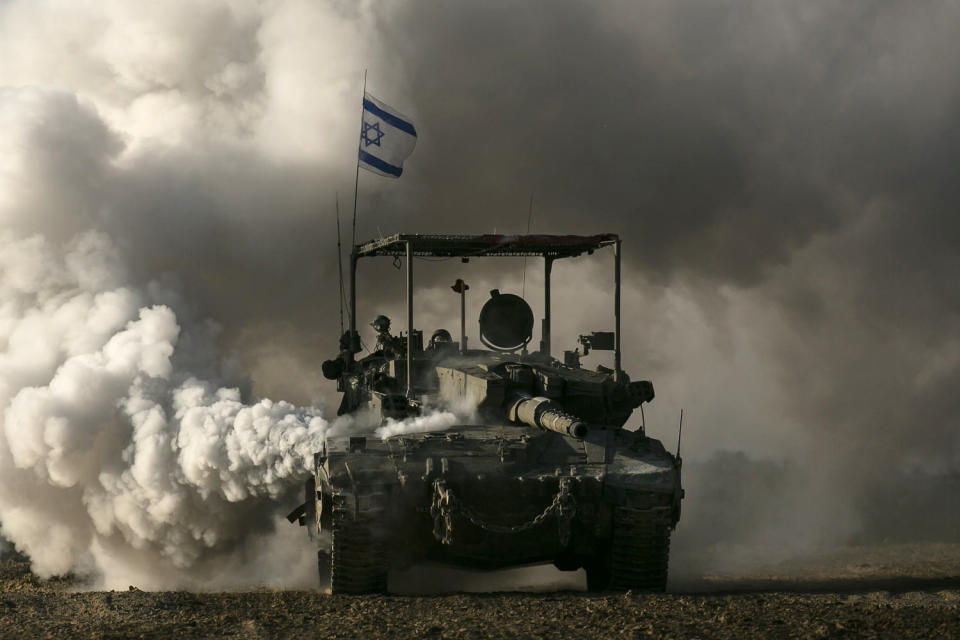
Palestinian Foreign Minister Riyad al-Maliki commended the panel of 17 judges, saying they “assessed the facts and the law” and “ruled in favor of humanity and international law.”
Likewise, South Africa’s government called it a “decisive victory for the international rule of law, and a significant milestone in the search for justice for the Palestinian people.” In Iran, a longtime adversary of Israel and an alleged human rights abuser itself, Foreign Minister Hossein Amirabdollahian congratulated South Africa’s “success” in a post on the X platform and called for top Israeli officials to face justice.
In reality, the nuance in the court’s ruling allows scope for grievance on both sides, according to Eliav Lieblich, an international law professor at Tel Aviv University.
“Israel would probably criticize this decision as having not engaged enough with its attempts to contextualize the harm in Gaza as part of an intense armed conflict with Hamas,” he said, “While South Africa might not be satisfied with the fact that, at the end of the day, the court did not deliver the most far reaching measure it requested — an immediate cease-fire.”
This is only the first legal skirmish in a wider clash that will likely take years. And although South Africa and Palestinian supporters may have some cause for celebration now, their victory overall still looks a tall ask, according to Hovell at the LSE and other experts.
“Genocide will be very difficult to prove on the merits of the case,” she said. “The bar is very high and rarely met.”
This article was originally published on NBCNews.com

